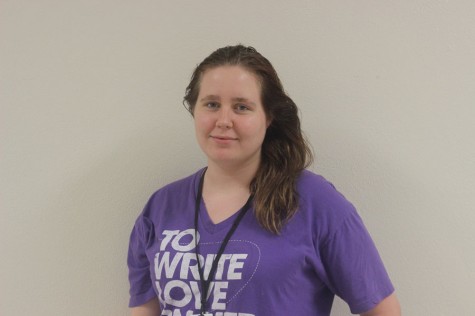Suicide prevention
It should not just be a day
Reaching out can be an important step to help prevent suicide.
Sept. 10, 2013 was World Suicide Prevention Day, which stirred emotions that many students could relate to.
The day went by without a lot of attention at Ritenour High School, but many people have at least heard of someone who
has committed suicide, and it has caused them a great amount of pain. Assistant Principal Bilal Ewing has experienced, studied, and mentored people suffering from the effects of suicide.
“[Suicide is] devastatingto those left behind,” Ewing said. “[It also leaves those left behind with] guilt, you feel you did not do enough. It starts someone else on the cycle leading to the same thing.”
Ewing is referring to the cycle of depression, which commonly leads to suicide. According to suicide.org, untreated depression is the leading cause of suicide.
Depression can cause feelings of sadness, a lack of energy, and withdrawal from friends.
Biologically, depression is a chemical imbalance in the brain which students may be covering up without realizing it.
According to suicide. org, if a depressed teen uses alcohol, their risk for suicide increases.
“[People] turn to other things to alter mood. Things like drugs, alcohol, cutting, and eating,” Ewing said. “When those fail to help, they turn to suicide.”
Often times, students talk to their friends about these feelings, and it is important for their friends to really listen to them.
“[If someone tells you they are suicidal, you should] take it seriously, encourage them to tell an adult, and offer to go with them to that adult,” Social Worker Karen Coughlin said.
Guidance Counselor Latanya Weaver agrees that students should not handle these things on their own, but instead go to a trusted adult. Ewing added that students can talk to their friends in need.
“[If someone comes up to you needing help,] just listen. Do not necessarily try to fix it, it might not be fixable,” Ewing said.
Things that may not be resolvable include death, divorce, andserious family emergencies. A common misconception
is that bullying leads directly to suicide, but that is not always the case.
“Bullying does not cause everything,” Ewing said. “But bullying can make things much worse.”
In most cases when someone is bullied, it may irritate them, but would not necessarily make them depressed. When someone who is already depressed gets bul- lied, it can make the depression much worse.
Due to people suffering from depression feeling as though they have no one to turn to, it is necessary to remind them that this is not true, and there are plenty of people in the school they can talk to.
“Even if they have a lot of friends, they feel that they cannot trust anyone,” Ewing said.
If someone does say some- thing, it is important to take it seriously and encourage they them to get help.
“Always assume they mean it,” Ewing said. “Even if they are doing it for attention, it still indicates that something is wrong.”

This is Ariella Smith's third year on the PepperBox staff and has been the Online Editor for 2 years. Other than her work on the PepperBox she is also...







